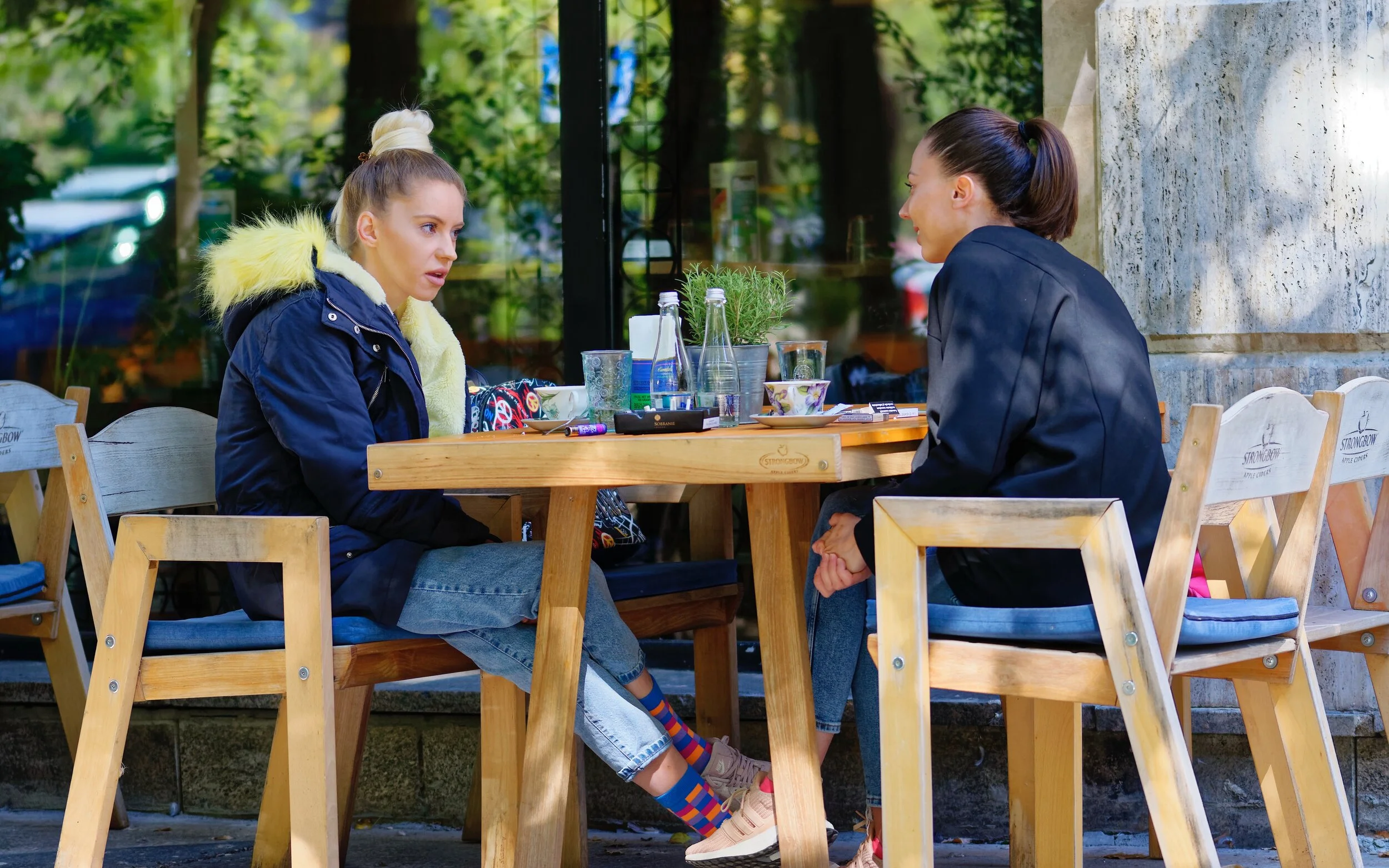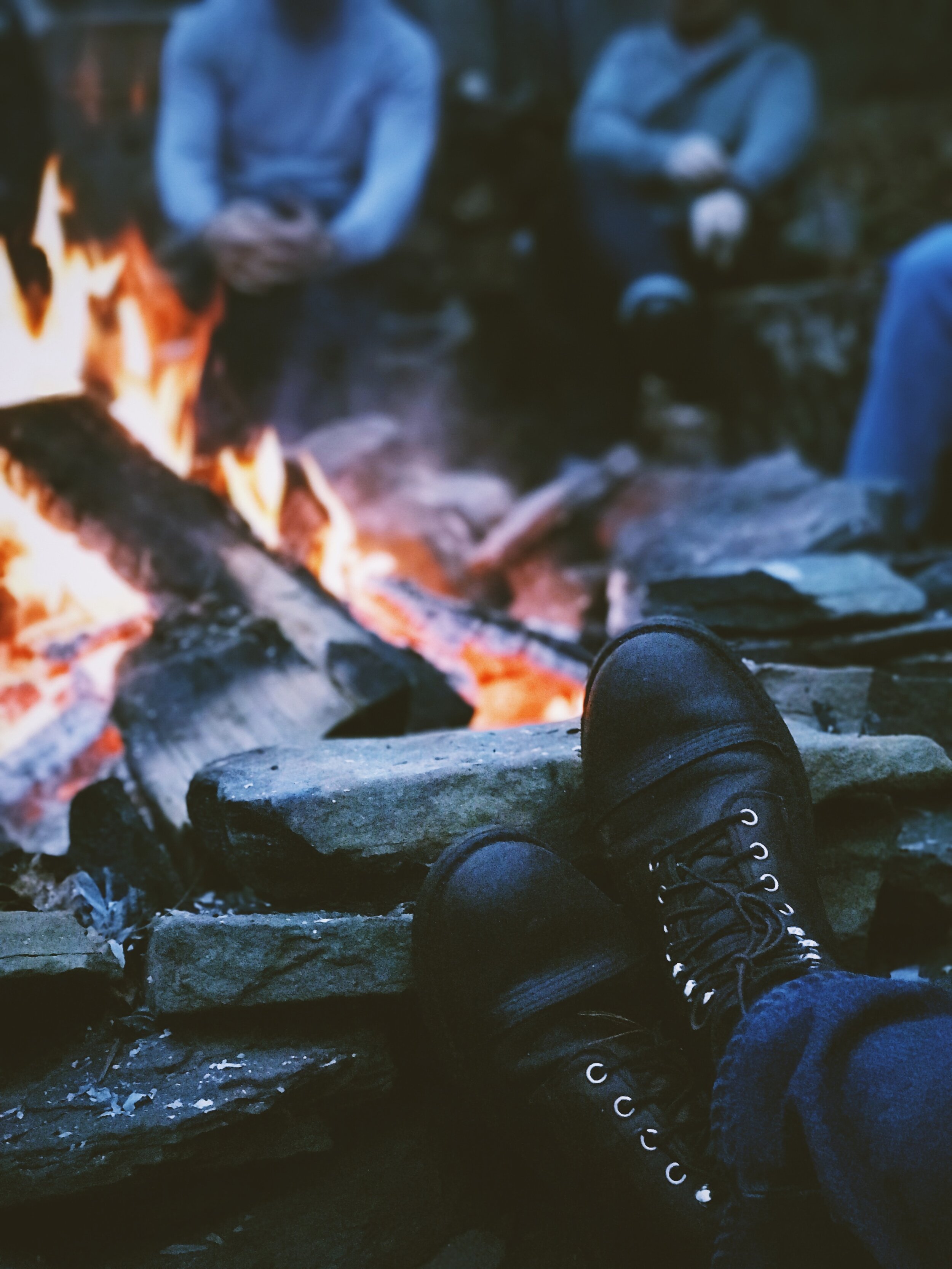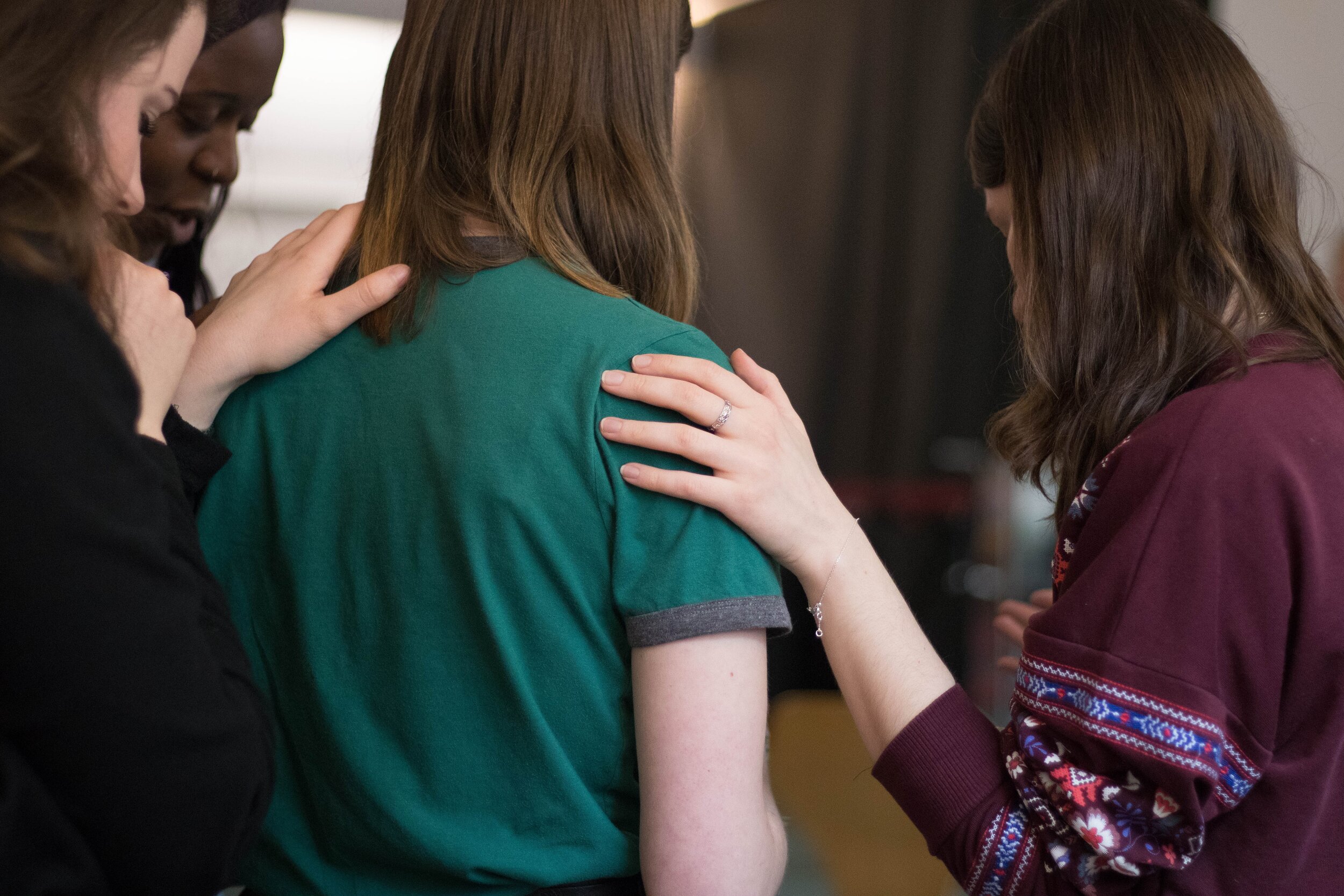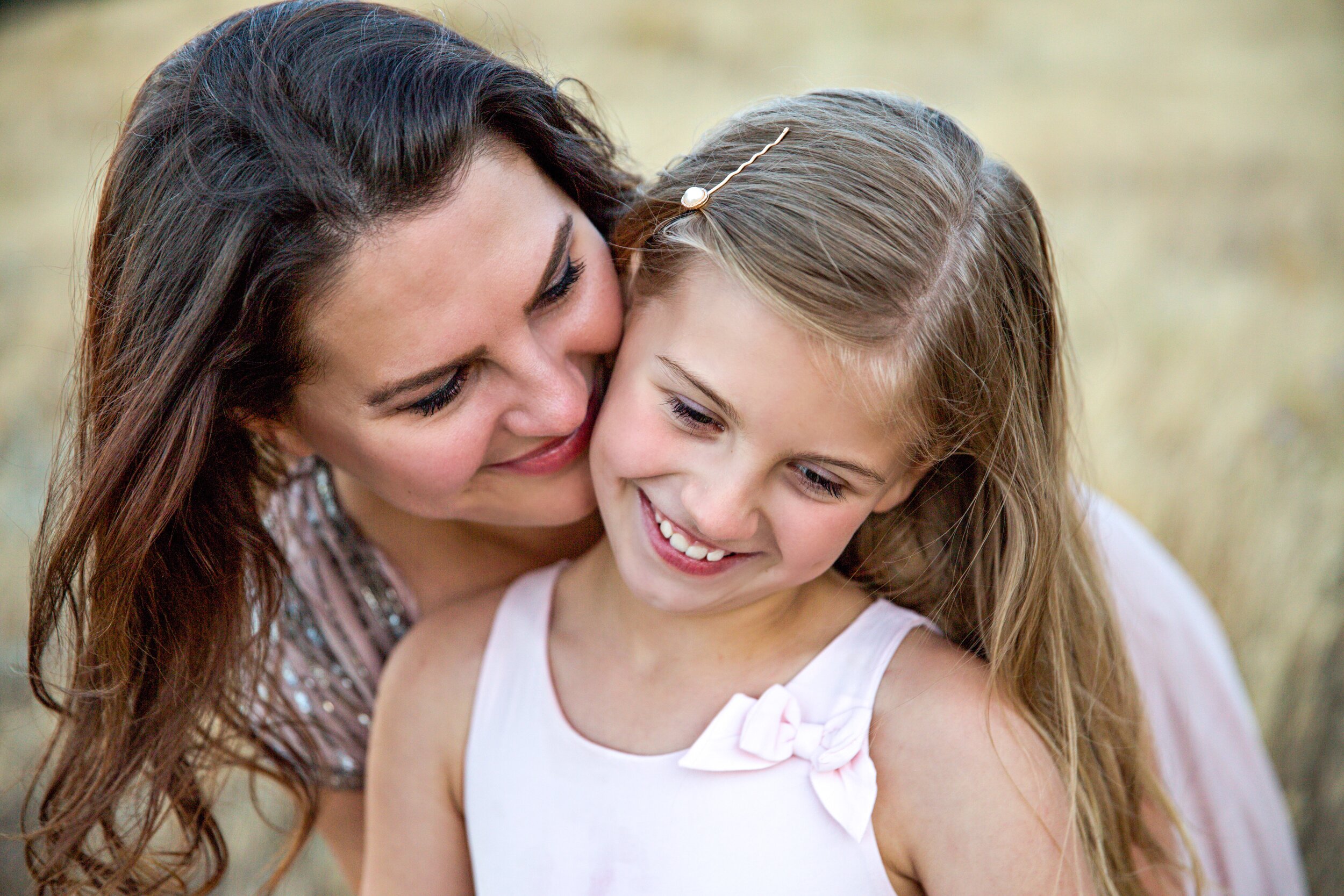People! Listen up! What if I told you I had the key to successful relationships?? Your people NEED you to understand this concept!
Finding Creative Rest
Albert Einstein once said, “He who can no longer pause to wonder and stand rapt in awe, is as good as dead; his eyes are closed.”
One thing I know from experience is that it is easy to get so wrapped up in the day to day activities of life that we forget to stop and allow ourselves the time and freedom to experience the awe and wonder of things around us. Sadly, it is experiencing awe and wonder and finding beauty that recharges us and renews our energy and passion to be innovative and creative in what we do on a daily basis.
Standing and admiring a work of art brings us amazement. Listening to a skilled musician use their talent to make a beautiful sound gives us chills. Walking outside and taking in a view of a magnificent panorama takes our breath away. Quietly watching a butterfly gather pollen in a garden filled with flowers whose colors run the gamut of the rainbow fills our heart to overflowing.
That thing Einstein said about wonder being a part of life? It’s not too far from the definition of creative rest. And, that is what we are discussing today.
What is Creative Fatigue?
We all need creative inputs. Whether you consider yourself a professional artist or you are an accountant who lives for numbers alone, you need creativity. Creativity is a part of every human being and it plays an important part in making us whole.
As parents, we often forget that we need to find creativity for ourselves. I’m not talking about doing some finger painting with your toddler or helping your middle schooler with a diorama for a school project. It’s not even about putting out handmade projects ourselves.It is about what we put INTO ourselves.
When was the last time you felt inspired or taken aback by awe and wonder? For so many of us, we have forgotten how to seek out and notice the beauty around us. If you haven’t noticed - really, truly seen and admired - something beautiful lately, you are likely experiencing creative fatigue. Much like we get acclimated to smells that are always in our environment, we often become apathetic to what lies around us. We must step back to become re-acquainted to the rest-giving sense of awe.
So, How Can We Find Creative Rest?
Creative rest is the process of beauty re-fueling your soul.
“Creative rest feeds our imagination, helps us find joy, fuels our gratitude, and fills us with hope.”
It is a place where there is no pressure to produce, but simply a moment to marvel at your surroundings.
What experiences or environments or type of art are beautiful to you? Where is it that you regularly experience awe and wonder? When we start to ask ourselves these questions, we are beginning a journey towards creative rest.
Maybe you find beauty on the trail through a local park. Maybe, your inspiration lives at a local art museum. Maybe all you have to do is walk outside and take in the flowers in your garden. There is much beauty around us, we must only stop and take a moment (or a few) and notice it. It is in these moments that creative rest comes.
Creative rest is the type of rest that inspires us and fills our soul with imagination and excitement. It doesn’t have to, but creative rest has the ability to lead us to our own creative output. It feeds our imagination, helps us find joy, fuels our gratitude, and fills us with hope.
How Do You Know If You Need Creative Rest?
It can be difficult to put your finger on the moment you last felt creativity. And, it’s hard to know if you need to find creative rest, as this is one type of rest that is a bit less concrete than the others. If you are unsure whether creative rest is what you need, check if any of these sound like you:
You find it difficult to feel like you deserve to be cared for
You always feel selfish doing something for yourself
You have difficulty enjoying things in their natural state
You rarely or never feel that your work and contributions are valued by others
You make self-destructive choices in ways that sabotage your happiness
You are always focused on what others need and don’t ever consider your needs a priority
Do any of these ring true for you? If they do, it’s time to seek some creative rest.
What Can You Do to Get Creative Rest?
I’m aware that creative rest can sound nebulous or unattainable. But, I’m here to assure you that creative rest is possible. It’s even possible to find it in small moments of your daily life.
How can you seek out creative rest if you only have a few moments in your day:
Observe nature. Take a walk around your neighborhood or even just through your front yard. Notice something in nature that is beautiful. Take time to really look at it and notice all the features that make it beautiful. Try this mindful exercise and apply it to a natural object of your choice.
Listen to music. Is there an artist whose voice makes you cry? Are there lyrics to a song that inspire you to dance? Stop what you are doing and play the music that inspires you. Don’t listen while doing something else. Stop and enjoy the music. Dance if you feel like it. On second thought, dance even if you don’t feel like it.
Do the thing you loved to do when you were young. Did you love scrapbooking in high school? Was your heart filled with joy when you rode your bike? Did you love to come up with dance routines to your favorite songs? Was that photography class you took in college the best thing you never knew you would love? Find the thing that you used to do that inspired you and do it.
Maybe you have some extra time to practice creative rest. Here are some things you can try:
Take a day off with no schedule. Put away your to-do list. Do the things all day that inspire you. Go on a long walk. Go hiking. Walk through an art exhibit with your favorite cup of tea in hand. People watch. For as long as you want to. Slow down and notice everything you can.
Take a creative class. If making creative things brings you joy, seek a creative outlet. Have you always wanted to take a class at your local pottery studio? Is the library offering a free journaling class? Maybe there is an online course on flower-arranging or watercolor that you’ve had bookmarked for awhile. Do it. There is something powerful and therapeutic that happens when we make something with our hands. Interesting to note - research shows that that creative hobbies lessen the effects of depression, reduce stress and improve a sense of well-being.
Go on an adventure to seek beauty. Do you know a great place for watching the stars? Is there a gorgeous hike you have been wanting to do? Is there a bakery a few hours away you have been meaning to try? Seek adventure and look for beauty along the way. Be flexible and don’t let unexpected events disappoint you. Have an open mind and be ready to encounter inspiration.
Many of us come up with excuses as we get older for why we don’t need this type of rest. I don’t have time. My kids need to get to their sports practice. This house won’t clean itself….
If we let these excuses lead us, we will miss out on this powerful type of rest.
Most likely if you are reading this, you are a parent. Whether you are the parent of young children or you are navigating the teenage years, you must not lose sight of the fact that you have a significant role to play in inspiring our children to find awe and wonder. The inspiration can flow both ways! I will leave you with this quote from the nature writer, Rachel Carson in Sense of Wonder:
If a child is to keep alive his inborn sense of wonder... he needs the companionship of at least one adult who can share it, rediscovering with him the joy, excitement and mystery of the world we live in.
Need clarification about creative rest? Leave me a comment.
Finding Rest in Social Connection
Let’s take a minute to paint a picture. Will you humor me for a few moments? Imagine you are exhausted from a long day. Your children have exercised a special sort of rebellion and misbehavior this week. There are about 10,000 things on your to-do list and it seems that every time you cross something off, another three things need to be added. The only interaction you have found with your spouse this week is a few moments in bed to update each other on your days before succumbing to sleep due to complete exhaustion. The words you would use to describe your week are chaos and weariness. (Stay with me here - something good is coming.)
In the midst of this not-so-great week, you found time to have coffee with a friend. You thought about cancelling, but decided you would be exhausted either way, so you go. From the moment you walk into the coffee shop your friend can tell you’ve been having a rough time. She asks you all the right questions and allows you to vent honestly about all that’s going on. You feel safe and comfortable to be completely open. As you walk to your car, you feel a bit of rejuvenation for the first time this week. It feels like everything will be okay. You feel, somehow, less exhausted. This, my friends, is social rest.
What Is Social Rest?
A lot of us will hear the phrase social rest and think it means we need to take some time alone. That, however, is not the what is meant by social rest. When we experience a lack of interaction with others that leaves us feeling lonely and isolated, we are in need of social rest. You may find yourself longing for adult conversation that goes beyond playing house and building Legos. We all need to experience depth and connectedness in our relationships with others. When our days lack this, we need to find social rest.
Social rest is about creating space for those relationships that bring us revival. Social rest feels like interacting with another person and leaving fuller than you started. Social rest comes from a meaningful interaction with another where there is no fear of disapproval or rejection. Social rest develops from the freedom to be completely authentic with another human.
How Do You Know If You Need Social Rest?
As parents, we have schedules that are full from the minute we wake up until the minute our head hits the pillow. We often have more activities and obligations than we have hours in a day. Social connection just does not seem possible when we allow the calendar to dictate our lives. We are left making most of our connections through texts and social media. A connection online can seem to be an easy fix for lack of connection with others. However, nothing can replace a genuine in-person connection.
While connecting online can seem like a lifeline sometimes, it does not meet all of our human need for personal connection. When you read a text, there is no way to see facial expressions and hear tone of voice. So much is lost when not meeting in person. And honestly, sometimes a hug is what we really need - and that is saying a lot coming from someone whose love language is not physical touch!
As parents, making these connections takes work, but at our core, we all long for them. If you’re not sure whether you need social rest, here are a few ways to be sure:
You prefer fostering online relationships rather than face-to-face relationships
You feel alone in the world
You feel disconnected and disengaged with friends and family
It is difficult for you to maintain close relationships or develop friendships
You isolate yourself from others
I know for many of you, at least one of those statements rings true. If that’s you, it’s time to learn how to find social rest.
How Can You Get Social Rest?
Social connection can seem unapproachable in the busy lifestyles some of us have, but I encourage you to seek social connection despite your full schedule. Here are a few ways you can foster social rest in small ways:
“If you are not intentional about doing the things you need, they won’t happen.”
Talk to a friend or close family member on the phone. Nothing beats an in-person connection, but some days a phone call is all we can manage. Resist the urge to simply send a text or like a photo, and actually reach out for conversation. Talk about how things are going for you, but also take time to listen to your friend and hear about their current triumphs and struggles. Don’t forget, it isn’t just about what we can receive, it is about us being there for others, as well.
Set a time with your partner or spouse that is just for connecting on a regular basis. Set a timer for 15 or 30 minutes and discuss your days and emotions. As partners, we often get lost in our to-do lists or individual responsibilities. By setting apart time to just be with each other, you create space for social rest. If you have trouble connecting, I recommend doing an exercise like the Comfort Circle, developed by Milan and Kay Yerkovich. (You can find worksheets to guide this exercise here: https://howwelove.com/resources/) Or keep it simple and just talk about your “highs” and “lows” for the day.
Go on a walk with a friend. This can be doubly restful! We all need to be active and this can also be a great time to connect with a friend AND get our bodies moving. Still have a little one at home? Push a stroller while you walk and talk. Prefer some kid-free time? Set your alarm a little early and arrange to meet a friend before all the kids are awake. Meeting someone is a great motivator to get out of bed, even if you aren’t a morning person. As caretakers, we all have seasons where free time is scarce. One thing I know for sure - if we are not intentional about doing the things we need, they won’t happen.
Okay, maybe you find yourself with a whole morning free and you want to exercise social rest in this time. How can you find social rest if you have a bigger chunk of time?
Join a book club or bible study (or any group of people who have a common interest). Find a group of people that you have something in common with. There are so many different groups and clubs. This can be a great place to foster connections or find new friendships. If you can’t find a group you want to join, start your own. Get creative. I have a group of friends I meet with once a month for a dinner club. We pick a theme and each bring a dish. Its a great time to connect and enjoy good food. Looking for like-minded people? Find a group that has the similar interests as you - scrap booking, knitting, photography, or parenting. This could be a great source for friendship and connection.
Get coffee with a friend. Or do something together that you both like to do. Make space to talk. Try not to talk the whole time, but take time to listen to your friend. It is important to consider what we can offer others. as well as, what we get out of it ourselves.
Plan a double date with another couple. It doesn’t have to cost a lot - you could even go to a park and roast marshmallows over a campfire. Sitting around a fire is a great place to have conversation! If you don’t have money for a babysitter, maybe you can start a co-op where you take turns watching each other’s kids.
Go on a getaway with your spouse or a friend. Sometimes, we have to make space to create social connection. If you feel like you have lost all social connection, it might be time to go away. Try to choose something with limited or no connection to technology.
For any of these activities to bring true social rest, you must be willing to be open and vulnerable. If that is difficult for you or feels impossible, it might be a good idea to seek counseling. This might be the breakthrough you need to find true connection.
I also want to clarify one thing. Many of you may be familiar with the concepts of introverts and extroverts. It is true that we each need different amounts of social rest, but we ALL need social connection. Extrovert or introvert, social rest is needed by all.
I hope you find ways to connect with others this week.
Questions about social rest? Leave a comment.
Are You In Need Of Spiritual Rest?
How to Find Emotional Rest in an Emotionally Exhausting World
Your heart swells as your little one blurts out “Mama” for the first time.
You burst with anger as your teen talks back for the 15th time today.
Anticipation of talking to your child’s teacher after “the incident” has your stomach doing flip flops.
Frustration consumes you as you find food wrappers and dirty dishes all over the family room.
Maybe you are experiencing a bout of loneliness as you long just to have an adult conversation.
As mothers and caretakers, we are asked to pull from our emotional banks all day long - believe me, as a mother of seven, I understand completely.
If you picture your emotions as a piggy bank, you are constantly making withdrawals. Have you ever considered that you need to replenish the bank before your emotional stash is drained or depleted? An empty bank can lead to burnout, exhaustion and hopelessness. Not only does this have a toll on our relationships and mental health, but it can take a physical toll as well.
Important Note: If you are feeling hopeless for days or can’t seem to function in your daily roles, you may need some professional emotional support. Ask a friend, your local church or mental health provider for recommendations. You can also look here for recommendations from Psychology Today.
Emotional fatigue is explained clearly by Saundra Dalton-Smith, MD, in her book, Sacred Rest,
We each have an internal capacity to manage emotions. We pour out of this space as we offer sympathy to a friend who just lost her husband, console a tearful toddler in our arms, or encourage our coworker on a job well done. Each interaction is giving a bit of ourselves. When our emotional withdrawals exceed our emotional capacity, we will experience emotional fatigue.
If we learn to recognize and monitor our emotional fatigue levels, we can start to seek out emotional rest before we get to the point of exhaustion.
Getting the emotional rest you need is the topic of our next stop on our journey of rest.
What Is Our Emotional Goal?
Having emotions is what makes us human. Emotions connect us. Protect us. And makes us have a sense of self. “Our emotions often dictate our choices and decisions,” says Suzie Lawyer, a licensed professional counselor. “When emotions are healthy our decisions are more sound and thought through. When our emotions are out of control, we often make decisions based on a reaction instead of careful thought. Rest gives us the opportunity to process our emotions and begin to regulate them so that our default responses are ones that will have a positive outcome.”
The goal is not to avoid emotions but to give our bodies and minds the proper rest we need so that we can experience our emotions in a healthy way and function at our optimum level.
Keeping ourselves functioning and running smoothly is an important goal. But did you know that our children’s brains are actually physically changed as a result of what they experience in relationship with us as parents?
“Thriving is an interconnected experience.”
In the book, The Whole Brain Child, Dan Siegel says about relationships, “we soak up like a sponge what we see in the behaviors, intentions, and emotions of someone else.” This will come up again and again in all the rest series - as parents, we are not only seeking rest to keep ourselves healthy, we are modeling behaviors so our children can grow and develop into their own best mental, physical and spiritual selves.
Our goal then, is to be our best emotional selves so we can help our kids be their best emotional selves. Thriving is an interconnected experience.
How Do You Know If You Need Emotional Rest?
How can we be aware of our emotional rest needs? Let’s look at some signs of emotional fatigue.
You lack the ability to feel emotions as you once did or you feel emotionally numb
You continually isolate yourself from others
You often focus only on your failures and flaws
You feel self-doubt and insecurity regularly, which hinders your tendency to try new things
You constantly feel the need to apologize or explain yourself in order to compensate for who you are
You get disappointed and angry with yourself for small mistakes
You become engulfed in thoughts of worry or anxiety often
You are easily distracted and struggle to focus
You lash out at your children, your spouse and others in your life
If any of these sound familiar, you could probably use some emotional rest.
So, What Can You Do to Experience Emotional Rest?
The term “emotional rest” can feel wishy-washy and far off, but there are many tangible ways to replenish your emotional tank. It’s important to take time regularly to tend to your emotions so that you don’t reach complete emotional exhaustion.
Here are a few ways to find emotional rest today:
Take Emotional Inventory - are there events or people in your life who drain you emotionally? You may not be able to completely eliminate them, but you can minimize these emotional stressors in your life.
Stop Comparing Yourself - Seriously. Changing yourself to fit in or trying to act in a certain way is extremely emotionally taxing. Instead, just be yourself! Embrace who you are. Write a list of things you are good at it - nothing is too small to add to the list. If you need to stay away from social media for awhile, do it! You got this!
Take the Risk of Vulnerability - I won’t lie to you and tell you this works every time. Vulnerability is a risk. However, if you are willing to take the risk to open up to a trusted friend or family member, you are taking a step towards an emotionally restful connection.
Take 15 minutes for yourself - As caregivers we are almost always giving to others. Make time for yourself. Set a timer. Schedule it in. Get up before everyone else. Let your spouse take over when they get home. Trade off with a friend. Having time to yourself and not being responsible for anyone else can go a long way towards restoration.
Exercise - Even just 15 minutes of exercise can help lower the stress hormones in your body and restore emotional balance.
Okay, so maybe you want to explore emotional rest in a deeper capacity. Here are a few ways to find emotional rest if you feel you need a bit more:
Meet with a Counselor or Therapist - Seeking counseling is a healthy way to help you understand and monitor your emotions well. Think of this as training for your emotions. You have to teach yourself how to manage your emotions well and a therapist can help with that. This is not a sign of weakness, but is a step towards health.
Start an Emotions Journal - This is a great way to reflect on your current emotions and learn to monitor them well. There are lots of great resources out there for how to create an emotions journal. Essentially, you start with some prompts and just start writing. This article is a great resource for getting started . Journaling is a proven way to reduce stress and negative emotions.
We often forget to monitor our emotions until we reach complete emotional exhaustion. If we learn to see the signs of emotional fatigue before we reach this point, we can start to find the daily emotional rest that we need. Take care of yourself so you can take care of others.
Questions about emotional rest? Feel free to email me or make a comment on the Skipping Stones Facebook page.
Physical Rest - What is it and how to Get It
Physical pain and soreness are important signals your body gives you to tell you it needs a break. All too often, we ignore these important signals, but today I want to invite you to stop pretending everything feels fine and start noticing the messages your body is trying to send you. Today, we will explore physical rest.

















